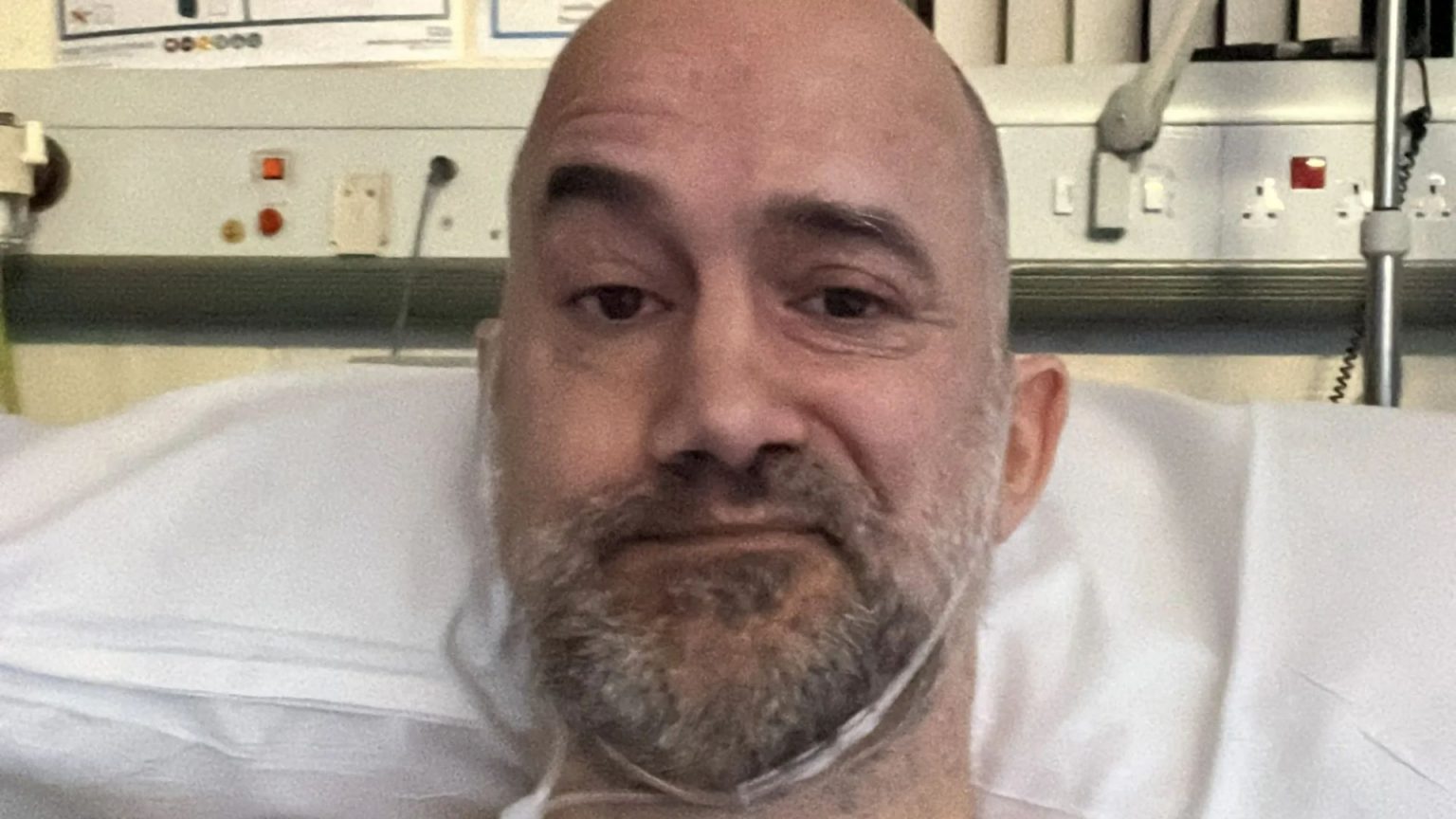Kristian Moors, a seemingly healthy 47-year-old graphic designer from Sheffield, experienced a life-altering event just two days after Christmas 2023. A dedicated gym-goer who lifted weights three times a week, Kristian awoke in agonizing pain in his shoulder and back. The pain, which he described as the worst he had ever experienced, was so intense that it caused him to vomit. His girlfriend, Sally Field, immediately called 111, the non-emergency medical helpline in the UK. Upon assessment over the phone, an ambulance was dispatched. However, shortly after paramedics arrived, Kristian lost consciousness. The paramedics swiftly initiated CPR and administered two shocks with a defibrillator to restart his heart.
Kristian regained consciousness and was rushed to the hospital. Tests revealed the terrifying truth: Kristian had suffered a cardiac arrest triggered by a heart attack, caused by a blocked artery. Further testing also uncovered high cholesterol, a condition he was previously unaware of. He subsequently underwent a procedure to insert two stents into the blocked artery to restore blood flow to his heart. The enormity of the situation only dawned on Kristian after he was transferred to the ward. He and Sally, overwhelmed with emotion, broke down in tears, expressing their love and relief. The trauma of the event left him terrified to sleep, plagued by aches and pains, and surrounded by the constant reminder of wires and needles connected to his body.
Kristian was discharged from the hospital just days before the New Year. Returning home was a challenge. In an attempt to distance himself from the traumatic experience, Sally rearranged their living room furniture, and Kristian discarded the clothes he had been wearing that day. He embarked on the road to recovery, slowly rebuilding his physical fitness through cardiac rehabilitation, a program designed specifically for individuals recovering from heart-related events. Despite his physical progress, he found the emotional toll of the cardiac arrest to be the most challenging aspect of his recovery.
The anxiety of the possibility of his heart stopping again weighed heavily on him. Every twinge and pain triggered fear and anxiety. Kristian often found himself overwhelmed with emotions, crying uncontrollably in the shower, questioning why this had happened to him. The emotional filter he once possessed seemed to vanish, leaving him vulnerable and fragile. Every message of support from friends and family, while appreciated, brought on fresh waves of tears. He struggled to sleep, fearing he might not wake up, a lingering reminder of his near-death experience.
Kristian’s experience underscored the importance of cholesterol awareness and management. High cholesterol, often asymptomatic, can significantly increase the risk of heart attack and stroke. Motivated by his own ordeal, Kristian hopes his story encourages others to get their cholesterol levels checked. There are several accessible avenues for cholesterol testing, including GP practices, NHS Health Checks (for those aged 40-74), research studies, local pharmacies, and community health improvement programs. For individuals with exceptionally high cholesterol and a family history of premature heart disease, genetic factors might be at play, such as familial hypercholesterolaemia (FH). The British Heart Foundation’s Heart Helpline offers further resources and support for those concerned about cholesterol or FH.
A year on from his cardiac arrest, Kristian is making remarkable progress. Tests show his heart function has returned to normal, and he is managing his cholesterol levels with medication. Reflecting on his ordeal, he acknowledges the depths of despair he experienced, feeling deeply unlucky and as if he was nearing the end of his life. However, with time and perspective, he has reframed his experience. Knowing the statistically low survival rates of out-of-hospital cardiac arrests, Kristian considers himself incredibly fortunate to be alive. He has shifted his focus from the “why me?” to a profound appreciation for every day he has been given. His story highlights the critical importance of the British Heart Foundation’s research and their life-saving impact on individuals like Kristian and their families. It serves as a powerful reminder of the preciousness of life and the importance of prioritizing heart health.


